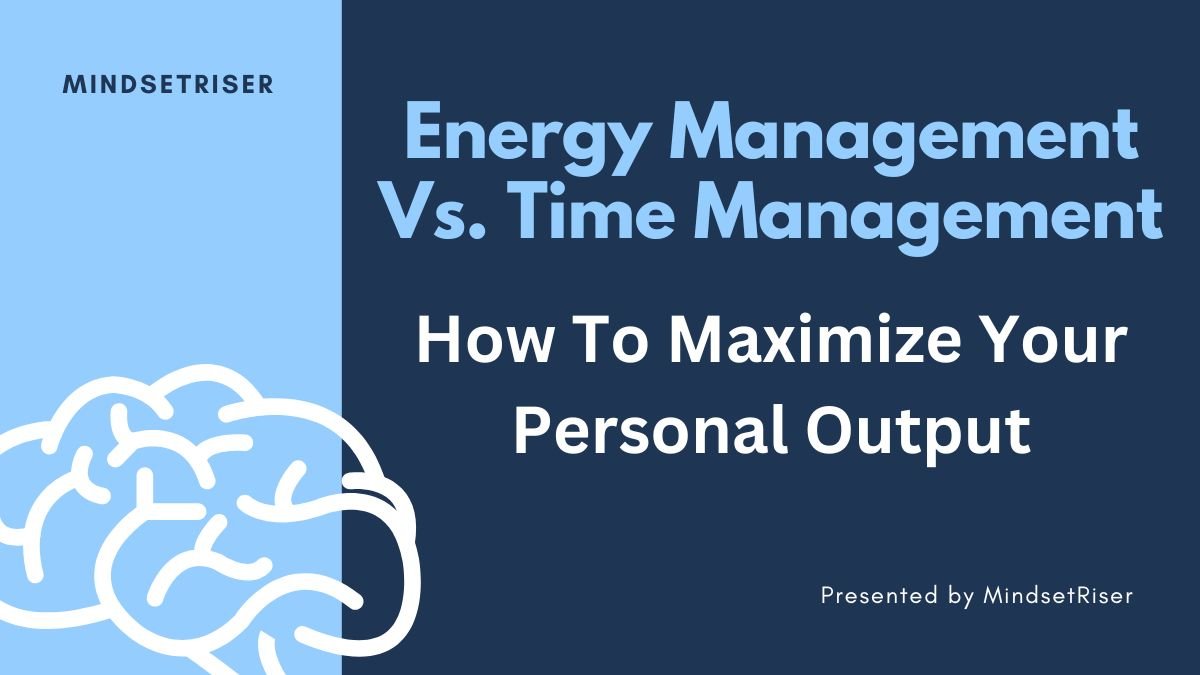Energy Management vs. Time Management: How to Maximize Your Personal Output
In our quest for productivity, we often focus on managing our time. But what if managing your energy could be even more powerful? While time is a limited resource, energy is renewable—and knowing how to balance the two could be the key to unlocking your true potential. In this article, we’ll explore the core differences between energy management and time management, and how combining both strategies can dramatically improve your personal output.
Understanding Time Management
Time management is the process of organizing and planning how to divide your time between tasks. It dates back to the early days of industrial productivity, when efficiency was measured by how much one could accomplish in a set number of hours.
Popular time management methods include:
- The Pomodoro Technique – breaking work into 25-minute intervals with short breaks.
- The Eisenhower Matrix – prioritizing tasks by urgency and importance.
- Time blocking – assigning specific times to specific tasks.
Benefits of Time Management:
- Clear structure and direction
- Increased task completion
- Better prioritization
Limitations:
- Time is a fixed resource: everyone has 24 hours.
- Doesn’t consider natural dips in energy and focus.
What Is Energy Management?
Energy management involves understanding and optimizing your physical, emotional, and mental energy levels to perform at your best.
The Four Types of Energy:
- Physical – influenced by sleep, nutrition, and exercise.
- Emotional – impacted by stress, relationships, and emotional regulation.
- Mental – affected by focus, decision fatigue, and cognitive load.
- Spiritual – driven by meaning, purpose, and alignment with values.
Common Energy Management Practices:
- Taking regular breaks
- Working during your peak productivity hours
- Practicing mindfulness or meditation
- Prioritizing sleep and hydration
Benefits:
- Sustainable performance
- Enhanced creativity and problem-solving
- Reduced burnout and fatigue
Time vs. Energy – The Key Differences
| Aspect | Time Management | Energy Management |
|---|---|---|
| Resource | Fixed (24 hours per day) | Renewable (can be replenished) |
| Measurement | Clock, schedule, calendar | Self-awareness, feedback loops |
| Focus | Planning and allocation | Performance and effectiveness |
| Limitation | Ignores biological rhythms | May lack structure without planning |
Time management tells you when to do something. Energy management tells you how well you can do it.
When to Prioritize Time vs. Energy
Knowing when to manage your time versus your energy can make a big difference.
Choose Time Management when:
- You have tight deadlines
- You’re scheduling meetings or appointments
- Your day needs structure
Choose Energy Management when:
- You’re doing creative or deep work
- You feel burned out or mentally drained
- You want to increase long-term productivity
Tip: Combine both by scheduling high-energy tasks during peak energy hours.
Strategies to Maximize Personal Output
Here are practical ways to blend energy and time management for optimal results:
- Identify Your Peak Hours: Track when you feel most energized and block that time for high-priority work.
- Use Technology Wisely: Tools like Google Calendar, Notion, or RescueTime can help balance time and energy.
- Take Smart Breaks: A 5–10 minute break every 60–90 minutes boosts focus and creativity.
- Prioritize Sleep: Sleep is the foundation of energy. Aim for 7–9 hours per night.
- Set Daily Intentions: Start the day by clarifying your goals and emotional tone.
Consistency—not intensity—is the secret to maximizing personal output.
Real-Life Example: The Entrepreneur’s Approach
Take Elon Musk, for example. While known for his aggressive time-blocking, he also manages his energy by limiting distractions and aligning work with purpose. On the other hand, Arianna Huffington emphasizes rest, mindfulness, and sleep as pillars of productivity—showing that energy and time can both lead to high performance when balanced well.
Conclusion
Time management and energy management aren’t rivals—they’re partners. By learning to structure your day while honoring your physical and mental rhythms, you can reach new levels of performance and satisfaction. The most productive people don’t just manage their calendars—they manage their energy to match their ambitions.

